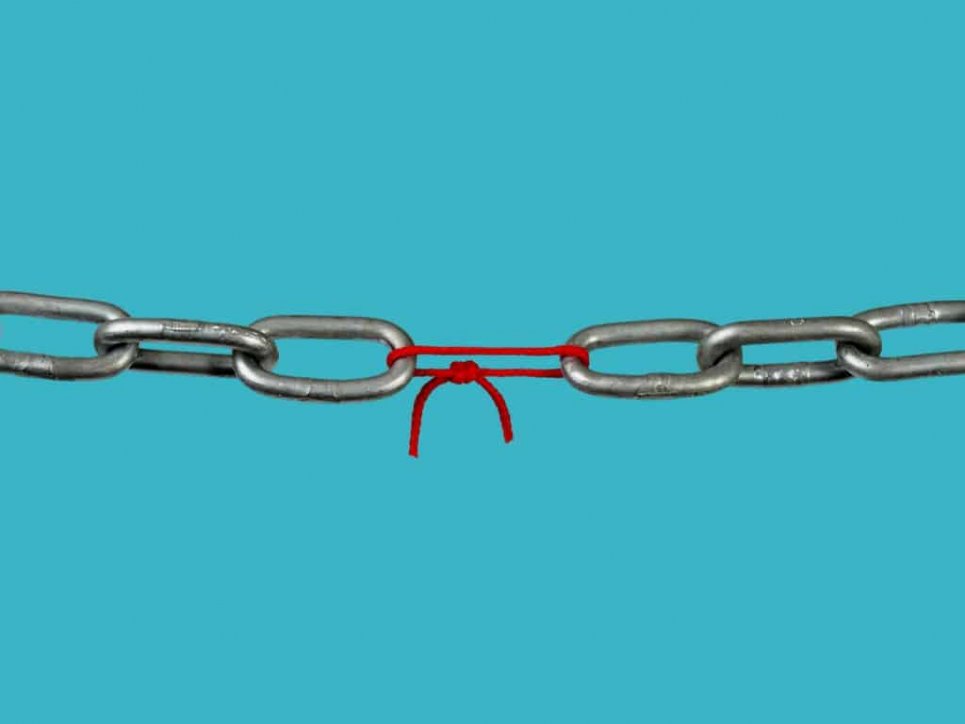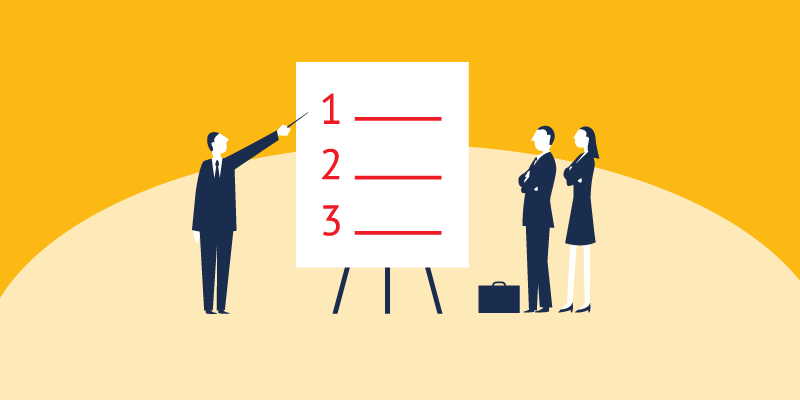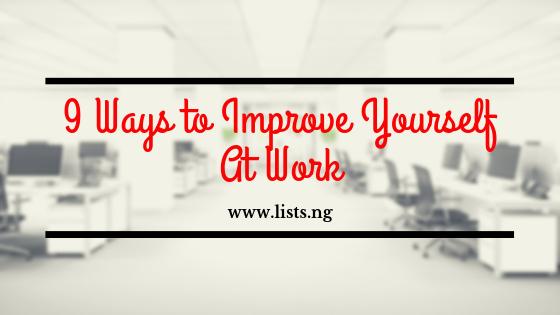Personal and professional development are pertinent to consistent efficiency and productivity. As human beings, there should be a desire to continuously improve at whatever we do. No matter how well you perform any task, you can always do better, especially as regards your work performance. Improving your skills and learning new things will help boost your confidence and productivity at work, as well as help you become a better person
Here are 9 ways in which you can improve yourself at work and ensure that your day-to-day assignments constantly yield required results.
1. Take responsibility

Taking responsibility can be scary more often as a result of self doubt. You will not learn and improve if you refuse to push yourself and try new things. People quite often underestimate themselves, ignoring their previous successes and focusing on the negatives. Impostor syndrome is common in the workplace. It erodes our confidence and makes us feel inadequate and question our capabilities, despite our previous successes. Eliminate fear and doubt, roll up your sleeves and start tackling those problems.
2. Acknowledge Your Weak Spots

As the popular saying goes, “no one is an island”, this means that you cannot know it all, and we all have strengths and weaknesses. Acknowledging that you actually have weaknesses is the first step towards improving yourself at work. Knowing your weakness will help in identifying easy improvement opportunities. Focus on identifying the things lowering your work performance and strive to get better. Read, learn, listen. Do whatever you can to be the best version of yourself, every day.
3. Acknowledge Others

Understand that you are part of a team, and the performances of individuals in the team will determine the growth of the organisation. Motivate and others excel, express gratitude, and give credit where credit is due.
4. Ask for help when you get stuck

Don’t be shy to request for help when you need it. If you get stuck while carrying out an assignment, ask those who have more experience for help. Asking for help doesn’t make people think less of you, rather, it shows that you are willing to learn and improve. More so, when approaching someone for assistance, provide as much context as you can and then explain the problem and all the various ways you’ve tried to fix the issue. Finally, make sure to learn from their guidance and apply it to future problems as they come up so that you do not ask for he same assistance every time.
5. Acquire more training

It is germane not to let complacency creep in, even when you feel you are good at your job. There is always room for improvement as change is happening all the time, all around us. Read books, take on both physical and virtual courses, watch tutorials, and learn new ways for solving problems. Read, learn, listen. Do whatever you can to be the best version of yourself, every day.
6. Organize & Prioritize

Identify the top three or four priority assignments that need to be completed, then create a daily schedule and follow. Ensure your task list is manageable, adds value, and benefits your firm
7. Don’t Leave Things Unfinished

This often occurs as a result of procrastination or from trying to do too many things at the same time. Sometimes we pile up work and when we see the size, we become discouraged and procrastinate. In order to be effective at work, endeavour to carry out one assignment at a time as this will yield more productivity and ensure that you’re not left with huge pies of unfinished work.
8. Avoid Distractions

Distractions are everywhere and sometimes had to resist, but very time you feel tempted to waste some time checking out your Instagram feed or watching your favorite YouTube channels, remember what’s at stake, remember that deadline, and remember that people are counting on you.
9. Listen more

Great listening skills lead to increased productivity with fewer mistakes. Spend more time listening than talking, and try not to interrupt people when they



